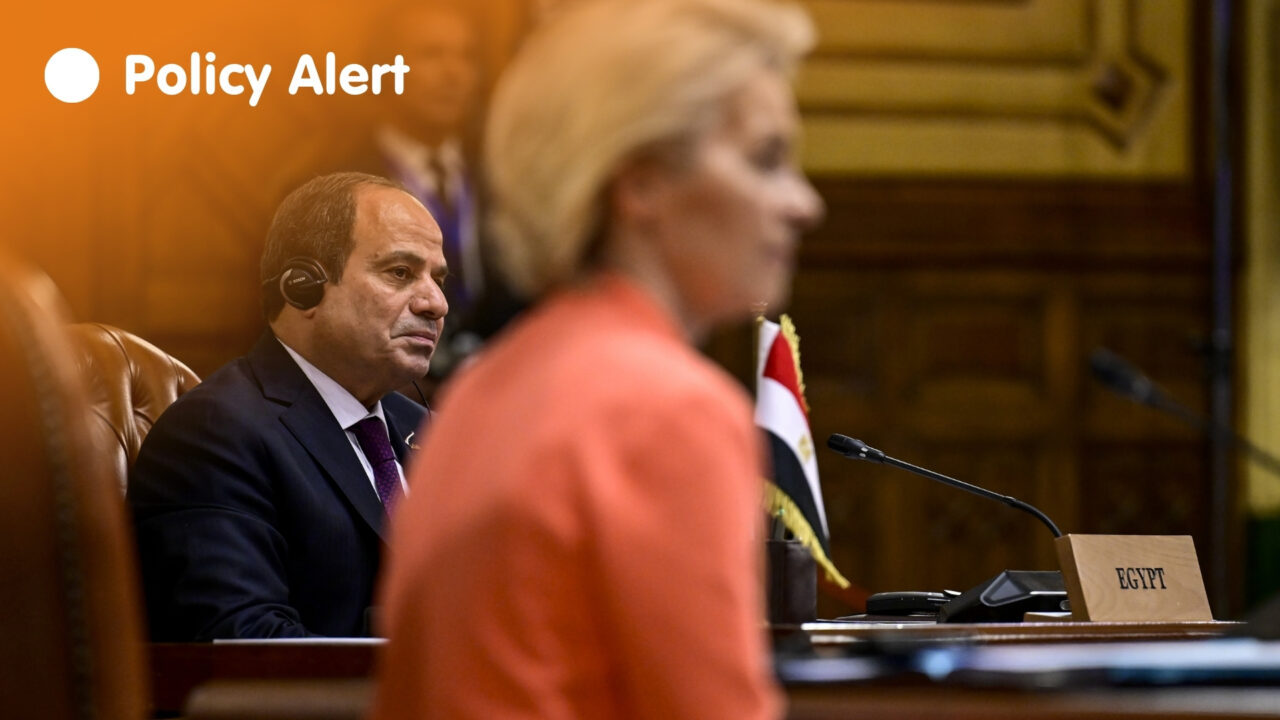Aid with reform: How the EU-Egypt deal can succeed
The EU should release funding to Cairo only if it undertakes following meaningful economic reforms
The European Union has announced a new strategic partnership with Egypt that includes an aid package of €7.4 billion. The deal is an attempt to reinforce Egypt’s stability and counter-migration efforts at a time when the country faces increased economic and security pressures from the war in Gaza. But the EU risks simply pouring its funding into a failing economic model unless it attaches meaningful conditions.
Economy and migration
The deal is part of a series of EU agreements with North African countries intended to control migration to Europe. But the essence of the Egyptian strategic partnership is economic: most of the funding takes the form of macro-financial assistance. The deal follows other agreements that Egypt has reached in recent weeks to address a serious economic crisis involving high debt levels (with public debt at 92.7 per cent of GDP), high inflation, and a severe shortage of foreign currency. In February, the UAE agreed to invest $35 billion in a huge resort development at Ras el-Hekma on Egypt’s Mediterranean coast. Earlier this month, the IMF increased an existing funding deal to $8 billion after Cairo agreed to devalue the currency.
Direct migration from Egypt to Europe is negligible, but the number of Egyptians travelling through Libya to cross the Mediterranean has been increasing – in 2023, 13,639 Egyptians arrived irregularly in Europe. The EU-Egypt partnership deal is designed to recognise Egypt’s current efforts and prevent a surge in migration caused by the deteriorating economy. The EU funding will help stabilise Egypt’s economy in the short term. But the regime may simply use this lifeline to continue the economic policies that have contributed to the very problems it is experiencing.
The risks for the EU
Under President Abdel Fattah El-Sisi, Egypt has focused public spending on a series of mega-projects including a new administrative capital city and the expansion of the Suez canal, managed through firms connected to the military and the state. The role of the military in the economy has ballooned, crowding out the private sector. There is little transparency about the operation of these companies and they enjoy significant tax breaks. Meanwhile, ordinary Egyptians’ quality of life has deteriorated and poverty has deepened.
If its new support for Egypt is not to prove a waste, it is essential that the EU ensures that its funding is only released following meaningful reforms, including:
- Greater transparency about the accounts and subsidy arrangements of firms connected to the military and owned by the state.
- Significant steps to increase the tax base, including through equalising the regimes applying to military-owned and private-sector firms.
- A more level playing field and greater access to capital for private firms.
- An overhaul of the state’s social protection system to reduce the level of hardship experienced by the Egyptian population.
- A scaling-back of spending on mega-projects in favour of investment that develops Egypt’s human capital and provides a foundation for private-sector export-focused growth.
Despite previous commitments by the Egyptian government to undertake these reforms, the political obstacles remain significant: the military provides Sisi’s power base. It will be tempting for the EU and the IMF to continue funding Egypt because of its strategic location and role in controlling migration. Nevertheless, without serious reforms, the most likely outcomes will be continued economic deterioration and a repeat of the present crisis.
The European Council on Foreign Relations does not take collective positions. ECFR publications only represent the views of their individual authors.



